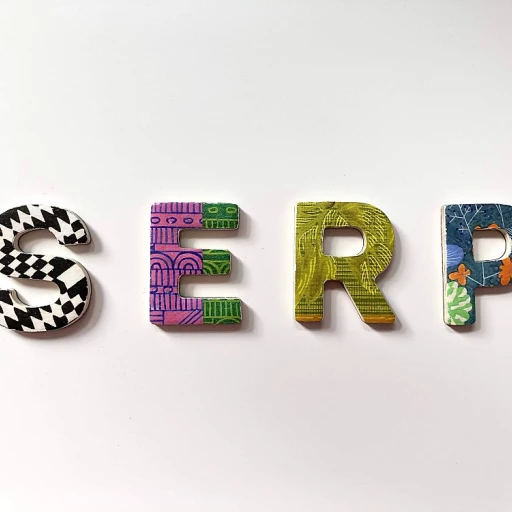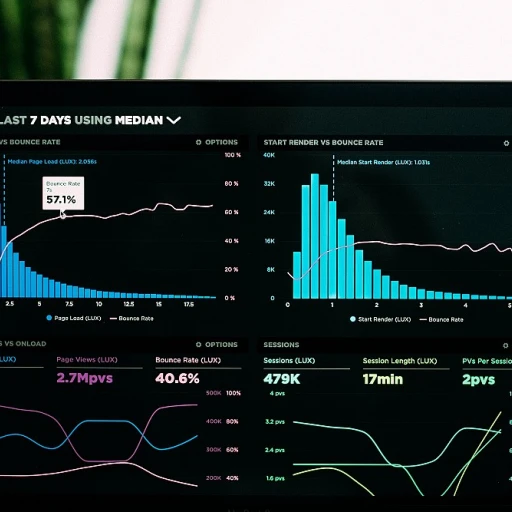
The Balance of Power: AI Algorithms and Search Equity
The Balance of Power: AI Algorithms and Search Equity
As artificial intelligence becomes more intertwined with search engine optimization (SEO), the question of equity in algorithmic decisions comes to the forefront. Businesses and individual users alike depend on the fairness of search engines, which are largely driven by complex AI algorithms. These algorithms are charged with the monumental task of ranking content in a manner that is both useful for users and equitable for content creators.
Navigating Algorithmic Complexity
At the heart of search engine algorithms lies a tapestry of code designed to evaluate, rank, and present the most relevant content to users. These algorithms assess a myriad of factors, including keyword usage, site speed, backlink profiles, and user engagement. Inherent in these factors is the potential for bias, which can inadvertently favor certain sites or content over others.
The Quest for Equitable Search Results
The ideal of a level playing field in digital spaces is a noble pursuit. Search engines, guided by the invisible hand of AI algorithms, dictate the visibility of websites, influencing traffic and conversion rates. A balance must be struck where credible, high-quality content gains the exposure it deserves, irrespective of the size or popularity of the entity behind it.
Unraveling the Impact of AI on SEO
- Analyzing the role AI plays in determining search rankings
- Assessing the fairness and impartiality of algorithmic decisions
- Ensuring smaller content creators can compete with larger players
- Developing strategies for content optimization that align with ethical guidelines
By understanding how AI influences SEO, stakeholders can work towards fostering an environment where search equity is not just an ideal, but a reality. This exploration of algorithmic influence is but the first step in a journey towards SEO that upholds principles of fairness and equity.
Behind the Code: Uncovering Bias in SEO Algorithms
Behind the Code: Uncovering Bias in SEO Algorithms
Exploring the inner workings of search engine algorithms is a quest for a level playing field in the digital world. Despite groundbreaking advancements, artificial intelligence (AI) applied to SEO continues to grapple with challenges of bias. Bias in SEO can manifest in various forms, often originating from the very data that trains these algorithms.
Understanding the Roots of Algorithmic Bias
The datasets used to train search algorithms are a reflection of the online world, inheriting its historical, societal, and cultural prejudices. An algorithm, no matter how sophisticated, is only as unbiased as the data it processes. For example, if past search data favored certain demographics over others, the AI is likely to perpetuate that trend, thus influencing visibility and accessibility on SERPs.
Identifying Bias Through Case Studies and Reports
A closer examination of case studies reveals that certain groups or topics may receive disproportionate representation in search results. This not only skews the digital ecosystem but can also result in an unfair competitive landscape. For instance, studies have shown that women and minority-owned businesses can be inadvertently marginalized, diminishing opportunities for equal economic growth. Quantitative analysis of search result patterns offers valuable insight into these disparities.
Real-World Implications of Search Equity
The implications of biased algorithms extend beyond the digital realm, affecting real-world perceptions and actions. When key information is less visible because of underlying biases, this can translate to reduced opportunities and visibility for those who rely on organic search for business, education, and more. This is where SEO equity becomes a necessary pursuit, ensuring a fair representation of all users in the information landscape.
For a deeper dive into the challenges and remedies of algorithmic bias in SEO, please consider reading the insightful AI's Dilemma: Navigating the Crossroads of SEO Bias and Algorithmic Fairness.
Ethical AI: Implementing Principles of Fairness in SEO
Ethical AI: Implementing Principles of Fairness in SEO
As artificial intelligence (AI) continues to evolve, its implications on Search Engine Optimization (SEO) are profound. The deployment of AI in SEO has raised pertinent questions about fairness and ethics. While AI algorithms can significantly improve user experience by providing more relevant search results, they can also inadvertently perpetuate biases if not designed with equity in mind. Hence, the call for Ethical AI in SEO is not just a request for moral adherence but a necessary step for sustainable online ecosystems.
Infusing Ethical Standards into AI-Driven SEO
There is an emerging consensus among tech leaders and digital marketers alike that ethical standards need to be woven into the fabric of AI algorithms. Ethical AI in SEO focuses on creating unbiased systems that equally serve diverse user groups. It advocates for algorithms that are designed and audited for impartiality. For example, ensuring that keyword ranking does not favor one demographic over another is an integral aspect of SEO fairness.
Crafting an Inclusive Digital Landscape
The push for ethical AI in SEO is also about crafting an inclusive digital landscape. This means algorithms should not only be non-discriminatory but also empower underrepresented voices. Strategies such as diversifying data sets to represent a wider spectrum of society, and using language models that do not privilege certain dialects over others, are essential steps toward leveling the digital playing field.
Embracing Transparency in AI Algorithms
Transparency in AI algorithms is pivotal to fairness in SEO. It involves shedding light on how algorithms make decisions and rank content. This is not just about opening up the black box but providing actionable insights that can help SEO professionals and content creators understand and improve their SEO strategies. Tools that provide transparency into the weight of ranking factors can democratize SEO, allowing for adjustments that mitigate potential biases.
Establishing Accountability in Algorithmic Decisions
With great power comes great responsibility, and this rings true in the realm of AI-powered SEO. Establishing clear lines of accountability when it comes to algorithmic decisions is a must. SEO practitioners must hold themselves, and the technologies they employ, to the highest ethical standards, ensuring that the pursuit of ranking does not overshadow the principle of fairness. This includes regular auditing for bias and the commitment to address any inequalities discovered.
Building Tools and Protocols for Fair SEO Practices
Building tools and protocols for fair SEO practices is not just necessary; it's mission-critical in the age of AI. From algorithmic audits to bias mitigation strategies, there is a need for a suite of resources to guide the ethical implementation of AI in SEO. Such resources help in assessing and ensuring that SEO practices do not disenfranchise any user group.
Deploying Ethical AI is an ongoing journey, and for a detailed analysis on how AI-powered SEO strategies can be aligned with fairness and equity, discover insightful approaches to ethical SEO.
Measuring Impact: Tools and Techniques for Assessing Fairness
Measuring Impact: Tools and Techniques for Assessing Fairness
In the labyrinthine world of search engine optimization, AI algorithms have drastically shifted the playing field. With the ever-increasing importance of equity in algorithmic SEO, the need for effective tools and techniques to measure and assess the fairness of these systems has become paramount.
Quantitative Analysis: The Metric System for Fairness
Understanding the numerical underpinnings of AI algorithms is essential for evaluating their impartiality. This involves a deep dive into a range of metrics, from click-through rates to rankings distribution. By employing statistical analyses, SEO professionals can pinpoint disparities and identify patterns that indicate bias. A shift from purely quantitative to include qualitative analysis, focusing on user experience and satisfaction, is also gaining traction. This multidimensional approach ensures that data-driven decisions contribute to enhancing the egalitarian nature of search engine results.
Innovative SEO Tools: Illuminating the Black Box
In the quest to demystify algorithmic operations, a suite of innovative SEO tools has emerged. These platforms offer insights into search engine behavior and allow for a comparison of keyword rankings across different demographics and regions. By leveraging such tools, one can dissect the factors contributing to ranking disparities, thus advocating for equity in search visibility. Among the plethora of available instruments, those that provide a multifaceted view of SEO performance are particularly valuable, shedding light on whether the content resonates equally well with diverse audiences.
Empirical Benchmarks: Setting the Standard
Beyond temporary fixes, establishing empirical benchmarks for fairness is crucial. This not only serves as a guide for content creators and algorithm developers but also as a barometer for monitoring progress over time. Industry benchmarks can highlight systemic issues and help in advocating for consistent standards that bridge the gap in search equity. As we aim for a future of fair representation in search results, these benchmarks act as beacons, guiding the SEO community toward ethical AI implementation.
Advocacy and Action: Joining Forces for Change
Moving from analysis to action involves the collective effort of the SEO community. By joining forces with organizations dedicated to ethical AI, SEO professionals can push for changes in industry practices and algorithm design. This united front is vital in persuading search engines to adopt transparency and fairness as core principles. Successful advocacy hinges on the ability of the SEO community to speak with a unified voice, demanding equitable algorithms that serve the diverse tapestry of internet users.
User-Centric SEO: Aligning with Audience Needs
Focusing on the end-users, their needs, and their experiences is the ultimate measure of an equitable SEO strategy. Continuous feedback loops, user surveys, and community engagement are instrumental in aligning SEO practices with audience expectations. When search engine optimization evolves in tandem with user-centric principles, the result is a balanced ecosystem that mirrors the diversity of its audience, fostering an inclusive digital space.
Future-proofing SEO: Advocating for Transparency and Accountability in AI
Embracing Transparency in AI-Driven SEO
As the digital landscape evolves, the importance of transparency in AI-driven SEO cannot be overstated. Transparent practices ensure that businesses and consumers alike understand how search algorithms work and what influences rankings. It is the cornerstone of trust and reliability in algorithmic decision-making. Transparency in SEO encompasses disclosing the factors that influence search engine rankings, offering insights into algorithm updates, and ensuring that AI systems provide explainable results.
Promoting Accountability in Algorithmic Decision-Making
Alongside transparency, accountability stands as a crucial pillar for future-proofing SEO. The AI systems behind search rankings must not only be transparent but also held accountable for their outcomes. This means having mechanisms in place to monitor performance, remedy any issues, and provide recourse for those adversely affected by algorithmic decisions. Accountability also involves evaluating and refining AI models regularly to prevent the perpetuation of biases or unfair practices.
Staying Ahead of the Curve: Proactive SEO Practices
To stay relevant in a rapidly changing SEO landscape, adopting proactive strategies is key. This entails keeping abreast of the latest AI advancements, understanding potential ethical and bias implications of algorithmic changes, and adjusting SEO tactics accordingly. Proactive SEO practitioners must:
- Regularly audit their SEO strategies for effectiveness and fairness
- Adapt to new AI technologies and updates swiftly
- Engage in ethical link-building and content creation practices
- Use data analytics to inform decisions and uncover hidden biases
Leveraging Tools for Ethical Optimization
To assure the integrity of SEO strategies, leveraging tools that prioritize ethical optimization is imperative. These tools can range from AI-powered analytics platforms that detect and mitigate bias, to fairness-focused algorithms that diversify content and ensure representation across search results. By utilizing such tools, SEO experts can align their practices with the principles of fairness, avoiding the pitfalls of unintentional exclusions or discriminations.
Championing Inclusive and Diverse AI in SEO
In the quest for equitable SEO, promoting inclusivity and diversity in AI development and application is essential. Diverse teams bring varied perspectives that can help identify and prevent biases in AI algorithms. An inclusive approach also ensures a broad range of voices influencing the direction of AI development, leading to search engines that reflect the rich tapestry of global users.













